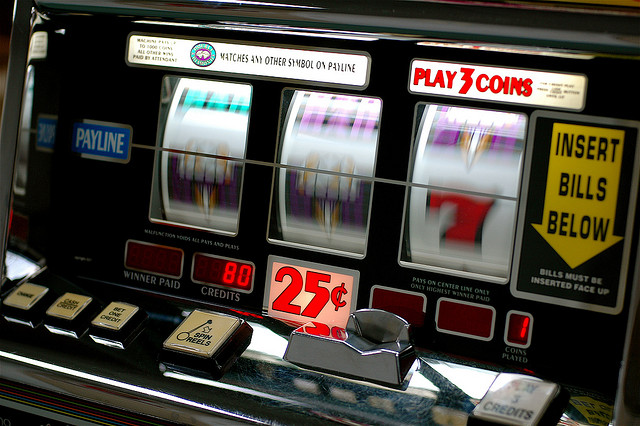Operators of casinos in the New England area are battling constantly for customers as gambling competition continues to intensify. To try and stay competitive, operators are increasing the number of jackpots available on slot machines, with a goal of attracting patrons and keeping them at their property.
Casino managers can make small adjustments to a slot machine, which will change the mathematical formula that is used to determine the changes a player has to hit the jackpot. The changes will create a stir within the gaming community which the managers hope will drive players to the gaming floor.
The Mohegan Sun, operated by the Mohegan Tribal Gaming Authority, continuously monitors their payout percentages, according to the MTGA president, Bobby Soper. By monitoring the percentages of payout, they can ensure the casino stays competitive.
When Massachusetts opened up its first slot parlor, Rhode Island and Connecticut casinos increased their payout percentages to try and stay in competition. When Plainridge Park Casino opened in late June, the other surrounding states knew they had to do something. Connecticut’s Foxwoods Resort Casino upped their payout percentage to 91.98 which is the highest it has been in almost two decades. Twin River of Rhode Island upped their percentage to 91.87, another high number, not seen in just over one decade. The Mohegan Sun came up to 91.79, which is the highest the casino had seen since 2010.
Plainridge Park Casino also decided to raise their percentage from just over 90.00 from July to 91.43 for the month of October. The changes may be small in regards to the percentage amount, but the effect on the bottom line of the casino is quite large based on the amount of money that is spent on the slot machines.
Plainridge only went up just over 1 point but this showed a shift of close to $2.25 million in casino revenues into winnings by players. Changes are made to the payout percentages based on the competitive reasoning of the casino managers. Some states have consumer protection laws that require each casino to provide a set payout percentage based on a minimum that must be met. This minimum is usually lower than what the casinos actually set their slot payout percentage at.
The payout percentages of the slot machines are not generally advertised by the casinos, with operators not commonly speaking about their strategies. The Boston Globe was able to obtain the information as listed above for payout percentages based on information as reported by regulators. Casino operators come up with their payouts by looking in the long term, considering how the jackpots will attract customers and keep them, by feeling the jackpots are more generous than the competitors.



